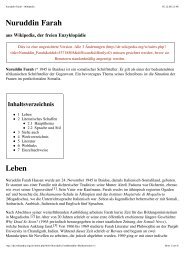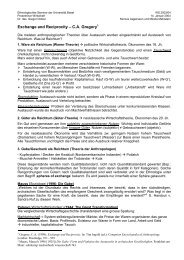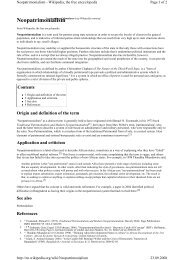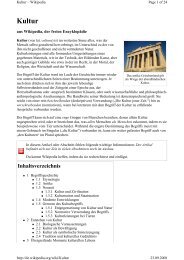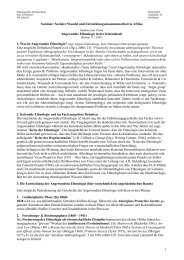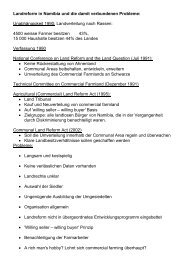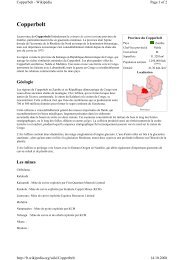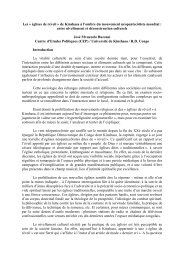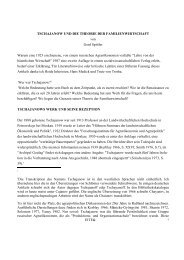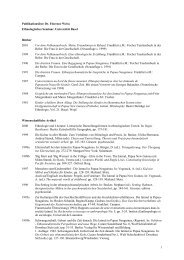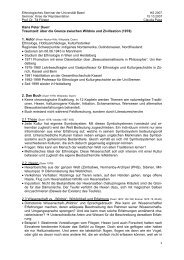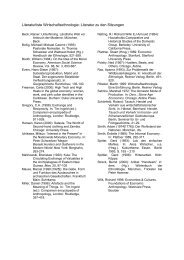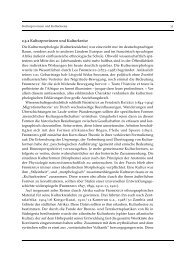Create successful ePaper yourself
Turn your PDF publications into a flip-book with our unique Google optimized e-Paper software.
<strong>Fula</strong> <strong>people</strong> - Wikipedia, the free encyclopedia<br />
The <strong>Fula</strong>ni are traditionally a nomadic, pastoralist, trading <strong>people</strong>, herding cattle, goats and sheep across the vast dry<br />
hinterlands of their domain, keeping somewhat separate from the local agricultural populations.<br />
History<br />
Origins and spread<br />
While some have speculated over the origin of <strong>Fula</strong>ni <strong>people</strong>, current linguistic and<br />
genetic evidence seems to suggest an indigenous West African origin among the Peul.<br />
[3] The vast majority of genetic lineages associated with them reflect those most<br />
commonly seen in other west Africans. Their language is also of west African origin,<br />
most closely related to that of the Wolof and Serer ethnic groups.[1]. Historical and<br />
archaeological records indicate that Peul-speakers have resided in western Africa since<br />
at least the 5th century A.D. as well. Interestingly, rock paintings in the Tassili-n-Ajjer<br />
suggests the presence of proto-<strong>Fula</strong>ni cultural traits in the region by at least the fourth<br />
millennium B.C. Scholars specializing in <strong>Fula</strong>ni culture believe that some of the<br />
imagery depicts rituals that are still practiced by contemporary <strong>Fula</strong>ni <strong>people</strong>. [4]<br />
Rise to political dominance<br />
Beginning as early as the 17th and 18th centuries, but mainly in the 19th century, <strong>Fula</strong>s and others took control of<br />
various states in West Africa.<br />
These included the <strong>Fula</strong>ni Empire founded by Usman dan Fodio (which itself included smaller states), Fouta Djallon,<br />
Massina and others.<br />
Culture & Language<br />
The language of <strong>Fula</strong>s is called Pulaar or Fulfulde depending on the region, or<br />
variants thereof. It is also the language of the Tukulor. All Senegalese who speak the<br />
language natively are known as the Halpulaar or Haalpulaar'en, which stands for<br />
"speakers of Pulaar" ("hal" is the root of the Pulaar verb haalugol, meaning "to<br />
speak"). In some areas, e.g. in northern Cameroon, Fulfulde is a local lingua franca.<br />
With the exception of Guinea, <strong>Fula</strong>s are minorities in every country they live in (most<br />
countries of West Africa). So some also speak other languages, for example:<br />
Portuguese and Kriol in Guinea-Bissau<br />
French and Arabic in Mauritania<br />
Hausa and French in Niger<br />
French and English in Cameroon<br />
Wolof and French in Senegal<br />
Sango and French in Central African Republic<br />
Bambara and French in Mali<br />
English, Hausa and Ghanaian languages in Ghana<br />
English and some indigenous languages in Sierra Leone, particularly Krio, that lingua franca.<br />
Hausa, other Nigerian languages and English in Nigeria<br />
Page 2 of 4<br />
<strong>Fula</strong>h Girl circa 1914<br />
Popular illustration of <strong>Fula</strong><br />
greeting ritual ca. 1910, in<br />
French it reads: Salutations<br />
among primitive <strong>people</strong>.<br />
The traditional dress of the <strong>Fula</strong> in most places consists of long colorful flowing robes, modestly embroidered or<br />
otherwise decorated. Also characteristic <strong>Fula</strong> tradition is that of women using Henna around the mouth, resulting in a<br />
blackening around the lips. <strong>Fula</strong> ethics are strictly governed by the notion of pulaaku. [5]<br />
<strong>Fula</strong> are primarily known to be pastoralists, but are also traders in some areas. Most <strong>Fula</strong> in the countryside spend long<br />
times alone on foot, moving their herds; they were the only major migrating <strong>people</strong> of West Africa, though most <strong>Fula</strong><br />
now live in towns or villages.<br />
The <strong>Fula</strong> have a rich musical culture and play a variety of traditional instruments including drums, hoddu (a plucked<br />
skin-covered lute similar to a banjo) and riti or riiti (a one-string bowed instrument similar to a violin), in addition to<br />
vocal music. The well known Senegalese <strong>Fula</strong> popular musician Baaba Maal sings in Pulaar on his recordings.<br />
http://en.wikipedia.org/wiki/<strong>Fula</strong>_<strong>people</strong><br />
14.10.2008



